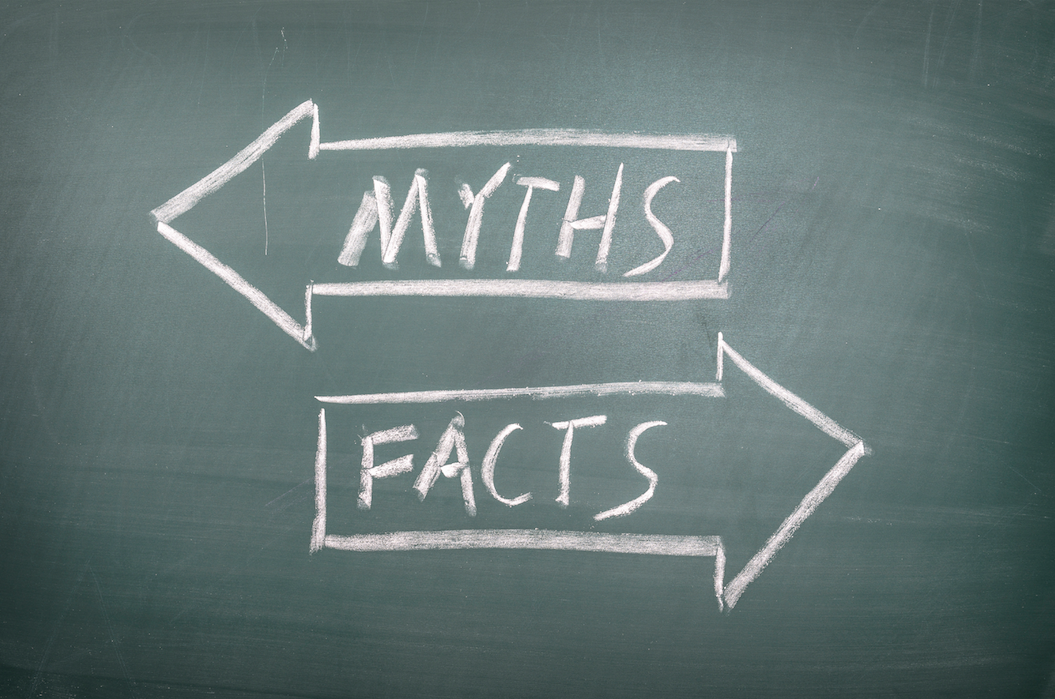People are confused about fats, and it’s pretty understandable on some level. After all, a few years ago, they were seen as the worst thing ever, and now we’re told that fats are an important part of a healthy diet.
At some point, you’ve probably heard some myths and misconceptions about fats, and they may have stuck with you. (Again, understandable.)
According to several dieticians contacted by the health24.com web site, the biggest misunderstandings about this important and poorly labeled food group, those that will be mentioned will probably be the ones you have most heard or read throughout your life. You will be amazed by the truth behind these myths:
Myth 1: Eating any amount of fats will make you gain weight
Sure, if you eat a lot of high-fat foods all the time, you’re probably going to see the number creep up on the scale. But if you watch your fat intake, you should be just fine.
“Because fat has 37 kilojoules per gram (compared to 16 kilojoules per gram of protein or fat), it’s true that a little goes a long way,” says New York-based registered dietician Jessica Cording.
“To prevent weight gain, make sure you’re consuming it in an amount that fits within the context of your daily kilojoule needs.”
According to the US Department of Agriculture (USDA), you should consume less than 10% of kilojoules per day from saturated fats.
In general, experts say you should aim to get about 20% of your kilojoules per day from healthy fats.
Myth 2: Fat has no purpose
Nope – you need adequate amounts of dietary fat to support normal brain and body functions, says Cording.
Among other things, your body needs fats for hormone production, cell signalling and body-temperature regulation. They’re also key for supporting healthy hair, skin and nails, Cording says.
Myth 3: Fat is bad for you
Like carbs, there are high-quality fats and low quality fats, says registered dietician Julie Upton and co-founder of nutrition website Appetite for Health.
“Low-quality fats, just like low-quality carbs, are not beneficial for your health,” she says, calling out saturated fats, which typically show up in processed foods.
According to the USDA’s Dietary Guidelines for Americans, foods with good fats include salmon, walnuts and flax seeds, while the not-so-good fats can be found in things like butter, beef fats or any partially-hydrogenated vegetable oils.
Myth 4: High-fat foods will raise your cholesterol
While saturated fats are linked to an increase in cholesterol, other types of fat, like poly-unsaturated fatty acids – found in sunflowers, soybeans, pumpkin seeds, sesame seeds, salmon, tuna and walnuts – have shown to significantly decrease cholesterol levels, says registered dietician Scott Keatley of Keatley Medical Nutrition Therapy.
Myth 5: There’s only one type of fat
Fat tends to be lumped together, but there are actually several different types.
“They are very different,” says Upton. Polyunsaturated and monounsaturated fats are heart healthy and are burned readily by the body, while saturated fats and trans fats are more easily stored as body fat, she explains.
Saturated fats “are found in the greatest amounts in coconut and palm kernel oils, in butter and beef fats”, according to the USDA. They can also be found in pork and chicken fats.
Meanwhile, trans fats are “found primarily in partially hydrogenated-vegetable oils” in processed foods and in animal fats, the USDA says.
This article was originally published on
www.womenshealthsa.co.za
Written by: Korin Miller
Fuente: www.health24.com
